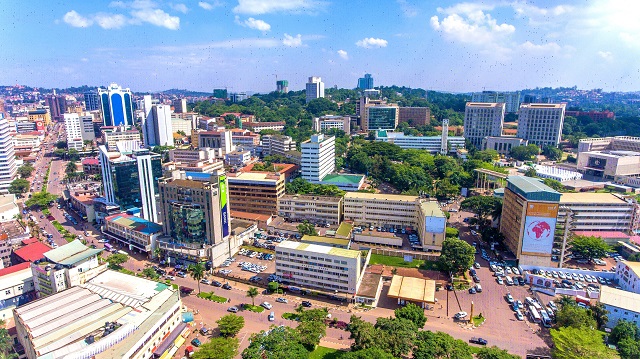
Kampala, Uganda | THE INDEPENDENT | The recovery of the economy has suffered a setback following the 42 days that the country was under a lockdown, this is according to economic analysts.
The economy was recovering from the effects of the March-to-June 2020 lockdown, with both the Bank of Uganda and the private sector reporting revived activity, despite some sectors remaining under lock.
The country’s economy grew by about 3.1% in the financial year just ended, which was slower than the 6.2% that had been forecast before the outbreak of Covid-19. Positive growth was mainly attained from the second and third quarters, because the first quarter (April to June 2020) was the hardest hit since that was when the country was put under the first lockdown.
Following the reopening, the economy picked up, but the Bank of Uganda, the World Bank and the International Monetary Fund were all in agreement with the Ugandan private sector, that the second wave of infection would reverse these gains, especially if another lockdown was instituted.
They hoped that by then, a reasonable part of the Ugandan population would have been vaccinated. However, by the time the second wave set in, less than one percent had been vaccinated.
Now the Purchasing Manager’s Index (PMI), a monthly study of the private sector activities in Uganda shows that in July, activities and the investors perception of the business continued to fall. The PMI slipped to 34.6 in July, down from 34.9 recorded during June.
This is the second successive decline in business conditions since the lockdown was enforced in June 2021. The latest reading is well below the series average of 52.5.
A reading below 50 indicates a decline in business activity and a deteriorating environment, while above the 50 mark, indicates a positive environment and growth.
According to the index, output, new orders and employment were all down for the second successive month in July. This also led to a reduction in prices especially because of low demand. “A reduction in prices was noted for the first time in 14 months. Companies lowered their selling prices amid weak demand. Although on a more positive note, firms were optimistic that activity will rebound once lockdown restrictions are lifted,” Ronald Muyanja, the Head of Trading at Stanbic Bank Uganda says.
The PMI which is sponsored by Stanbic Bank involved some 400 respondents covering the agriculture, industry, construction, wholesale/retail and the services sectors, and focuses on new orders, output, employment, suppliers delivery times and stocks of purchases.
The index that more than half of all respondents signaled declines in each of the sectors. Sectors like tourism, education and entertainment are still largely under strict measures, with industries like bars and entertainment places not allowed to open.
These have effects on other sectors like brewers, stationers, and transporters. As a result, these cannot make new recruitments, make orders or increase salaries among other activities. “The recent Covid-19 lockdown resulted in further reductions in both output and new orders. Output has decreased across all sectors. In line with falling workloads, companies have also scaled back their employment and purchasing activity for the second consecutive month,” Muyanja added.
However, the researchers say that this was outweighed by lower charges for utilities, falling purchase prices and a reduction in staff costs resulting in a decline in overall input costs.
According to the Uganda Bureau of Statistics, headline inflation for Uganda for the 12 months to July 2021 rose by 2.1 percent, up from 2.0 percent in June 2021. “This was mainly attributed to the Annual Food and Non-Alcoholic Beverages Inflation that increased to 0.7 percent in July 2021 from minus 1.6 percent recorded in June 2021.
In addition, Annual inflation for ‘Restaurants and Accommodation Services’ increased to 1.3 percent in July 2021 from 0.2 percent and ‘Housing, Water, Electricity, Gas and Other Fuels’ increased to minus 0.9 percent in July 2021 from minus 1.5 percent in June 2021,” says UBOS inflation consumer price index.
With input costs decreasing and demand weak, companies lowered their selling prices for the second month running, with agriculture as the only sector registering a rise in prices.
Yet the low prices could not lead to increased purchases due to the lockdown especially in July.
Exports also declined in July, continuing a trend that has lasted in the past 11 months.
Initial data suggests that reductions in business activity could have affected the ability of companies to export their products.
There is also an indication that some countries instituted more restrictive travel measures from countries that are registering sharp rises in new infections, Uganda being one of them.
July data pointed to a second successive lengthening of suppliers’ delivery times.
Market analysts widely linked delivery delays to the effects of the lockdown, with travel restrictions and roadblocks being mentioned.
However, going forward, firms were optimistic that activity will rebound once lockdown restrictions are lifted.
*****
URN
The post Second lockdown reversing economic recovery gains – Experts appeared first on The Independent Uganda:.
from The Independent Uganda: https://ift.tt/3ypFePu
0 Comments